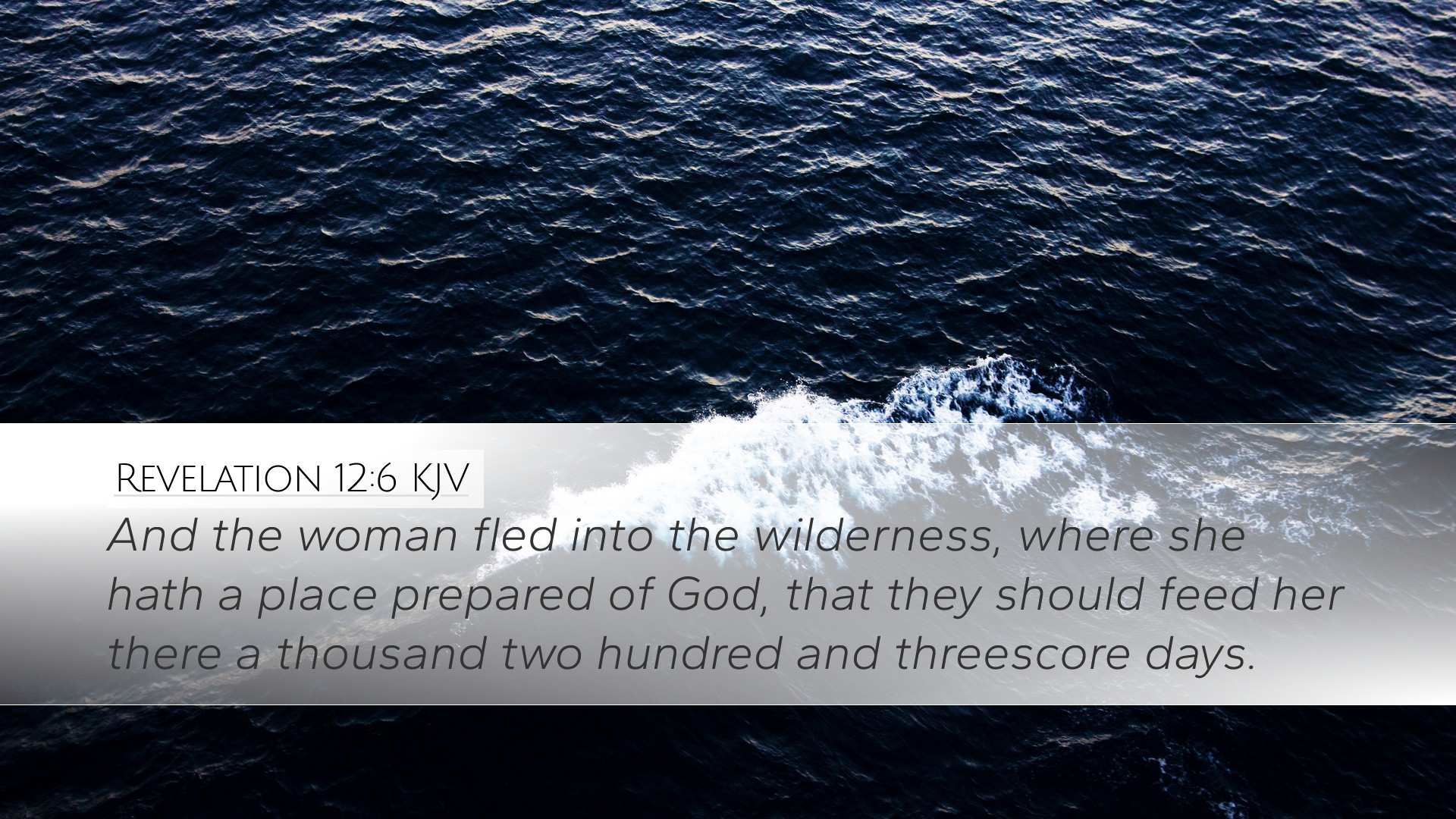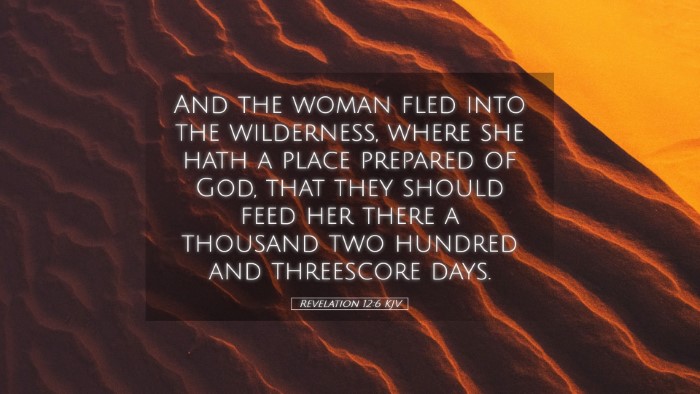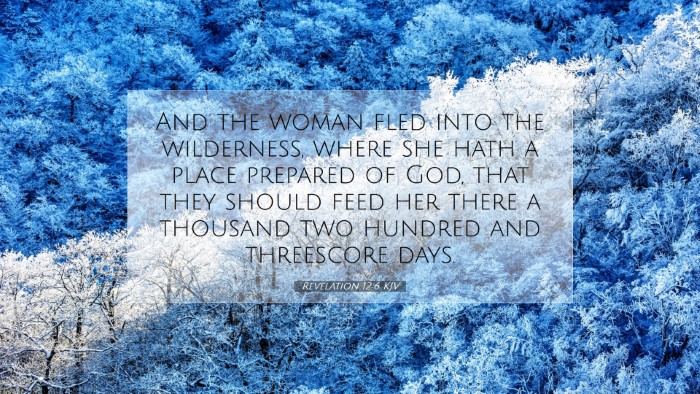Commentary on Revelation 12:6
Verse: "And the woman fled into the wilderness, where she hath a place prepared of God, that they should feed her there a thousand two hundred and threescore days."
Introduction
Revelation 12:6 presents a vivid image of a woman fleeing into the wilderness, reflecting a period of trial and divine protection. This commentary synthesizes insights from prominent public domain commentators such as Matthew Henry, Albert Barnes, and Adam Clarke, providing a comprehensive analysis for pastors, students, and scholars.
Contextual Analysis
Understanding this verse necessitates contextual awareness of the broader narrative in Revelation 12. The chapter introduces a cosmic conflict between good and evil, symbolized by the woman and the dragon. The woman, often interpreted as representing God's faithful people or the Church, gives birth to the Messiah, while the dragon symbolizes Satan's attempts to thwart God's plan.
Matthew Henry highlights that the "woman" symbolizes the nation of Israel, through whom Christ was born, while also representing the Church that continued to exist amid oppression. Henry's perspective underscores the duality of the figure—both historical and eschatological in nature.
Analysis of Key Phrases
-
"Fled into the wilderness": This phrase indicates a desperate escape from the forces of evil. Albert Barnes notes that the wilderness often symbolizes a place of trial but also a location of provision and solitude, where God can nourish and protect His people.
-
"Place prepared of God": This indicates divine providence. Adam Clarke emphasizes that the wilderness is not merely a physical location but a divinely orchestrated safe haven for the faithful. It is a testament to God's protection amidst adversity.
-
"Feed her there a thousand two hundred and threescore days": This period of 1,260 days is significant in biblical prophecy, often interpreted as three and a half years. Matthew Henry suggests this timeframe signifies a limited period of suffering before divine deliverance, aligning with other prophetic timelines found in Daniel.
Theological Significance
Theologically, this verse encompasses themes of God's sovereignty, the perseverance of the faithful, and the ultimate victory of good over evil. Barnes elaborates on the assurance given to believers that even amidst trials, God has prepared a refuge. This assurance invites theological reflection on God’s faithfulness throughout historical and eschatological troubles.
Furthermore, Clarke posits that the mention of "feeding" evokes the image of divine sustenance, paralleling how God provided for His people in the wilderness during their exodus from Egypt. This carries a profound message about trust in God's provision even during times of distress.
Practical Applications
-
For Pastors: This verse can inspire sermons on God's protection and provision during trials, emphasizing the importance of trusting in divine plans.
-
For Students: Understanding the symbolic nature of the woman and her flight can aid in grasping the complexity of apocalyptic literature and its interpretations throughout history.
-
For Theologians: This verse serves as a cornerstone for discussions on eschatology and the Church's endurance through tribulations, inviting deeper examination of God's covenant faithfulness.
Conclusion
Revelation 12:6 encapsulates profound truths regarding the nature of God's protection and the perseverance of believers amidst persecution. Drawing on the insights of Henry, Barnes, and Clarke, this analysis not only underscores the historical significance of the text but also calls readers toward a richer spiritual understanding and a deeper trust in God’s providential care. As the faithful continue their pilgrimage, this verse serves as a reminder of the wilderness as a place of both challenge and divine nourishment.


